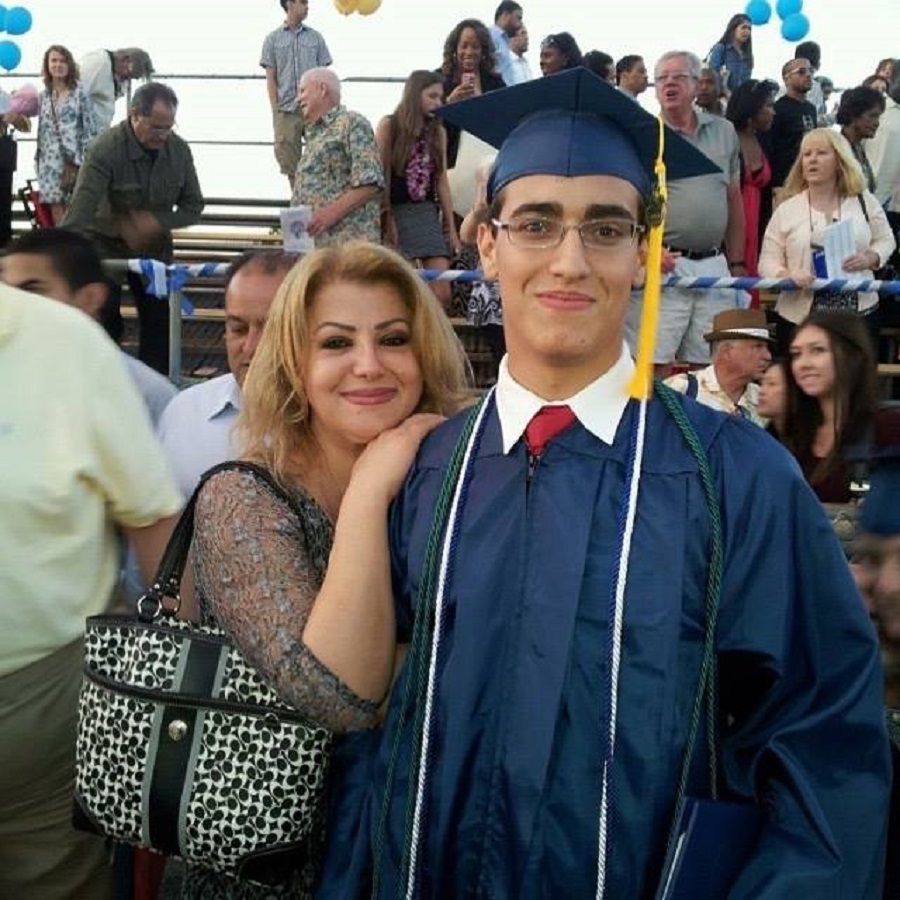A federal jury on Thursday decided a Long Beach police officer didn’t use excessive force when he fatally shot an unarmed college student who fell from a second-story window and then struggled with the officer who’d arrived after bystanders called for help, according to an attorney on the case.
Officer Matthew Hernandez fired on 20-year-old Feras Morad on the evening of May 27, 2015, after a three-minute struggle in which Hernandez hit Morad with a flashlight, shot a Taser at him and attempted to wrestle him to the ground, according to court documents.
At trial, Hernandez testified that Morad resisted despite all of this, and eventually came at him with his fists clenched, prompting the officer to shoot in self-defense.

Other witnesses, including a trio of firefighters who watched the scene unfold, testified that Morad was dazed and never seemed threatening or aggressive.
One of them, Capt. Robert Grego, said he was shocked when Hernandez even drew his gun, according to court papers.
Morad’s death prompted his family to sue, alleging negligence, civil rights violations and excessive force against the officer and the city of Long Beach.
After about a day of deliberations, jurors rejected all of those claims.
In a statement, the union that represents Long Beach police officers thanked jurors for their decision.
“No officer ever wants to be involved in a shooting, yet police officers are occasionally thrust into no-win dangerous situations where they have to make split-second decisions,” association president Jim Foster said. “We appreciate the hard work of everyone involved who helped provide the jury with the facts of this case. This event has been devastating for everyone involved.”
Attorneys for Morad’s family didn’t immediately respond to a message Thursday afternoon.
Morad’s death sparked protests, with almost 100 people marching to Long Beach police headquarters during a rally in June 2015. Morad was planning on studying political science at CSULB where he’d joined the debate team.

He was with his debate teammates at an apartment near Long Beach’s Traffic Circle neighborhood when he jumped or fell from the second-story window, according to court documents.
He appeared to be under the influence of some type of drug, possibly psychedelic mushrooms or bath salts, according to some witnesses, but Morad’s blood tested negative for both substances, according to court papers. Experts tried to do more drug testing on Morad’s blood but it was inadvertently discarded before they could, according to a report from the Los Angeles County District Attorney’s office that cleared Hernandez of any criminal wrongdoing.
The police officers’ association pointed toward drugs as a factor in Morad’s death.
“We hope those people who provided Mr. Morad with the drugs he ingested are finally brought to justice for causing this tragedy,” Foster said.
In a trial that lasted about two weeks, attorneys presented dueling versions of what happened during the last moments of Morad’s life and of Morad himself.
In his closing argument Wednesday, attorney Dan Stormer showed pictures of Morad smiling at his high school graduation with his family members around him. In the next slide, he showed pictures of academic accolades he’d won as a student.
“This is him and the type of person he was,” Stormer said. “He was committed. He was brilliant. He was hardworking and he was loved.”
But Kyle Bevan, Hernandez’s attorney, pleaded with the eight jurors to judge what happened from the officer’s perspective.
“The Feras Morad he encountered in the alley is a markedly different one than you’ve been shown in court,” he said.
Hernandez didn’t know about the dedicated student. He knew only about the bloody 20-year-old man who was now resisting him, Bevan argued.
He reminded jurors that the law requires them not to use 20/20 hindsight when rendering a verdict. Instead they’re asked to judge Hernandez’s actions based on what a reasonable officer in the same situation would do.
As the trial came to a close, Stormer painted Hernandez as a panicked bully who chose to shoot Morad instead of backing off or waiting for backup.
Bevan sketched a different picture, saying Hernandez had run out of any other options to defend himself against an uncontrollable man who was now coming to attack him.
“In that moment, Officer Hernandez reasonably feared for his life,” Bevan said.

